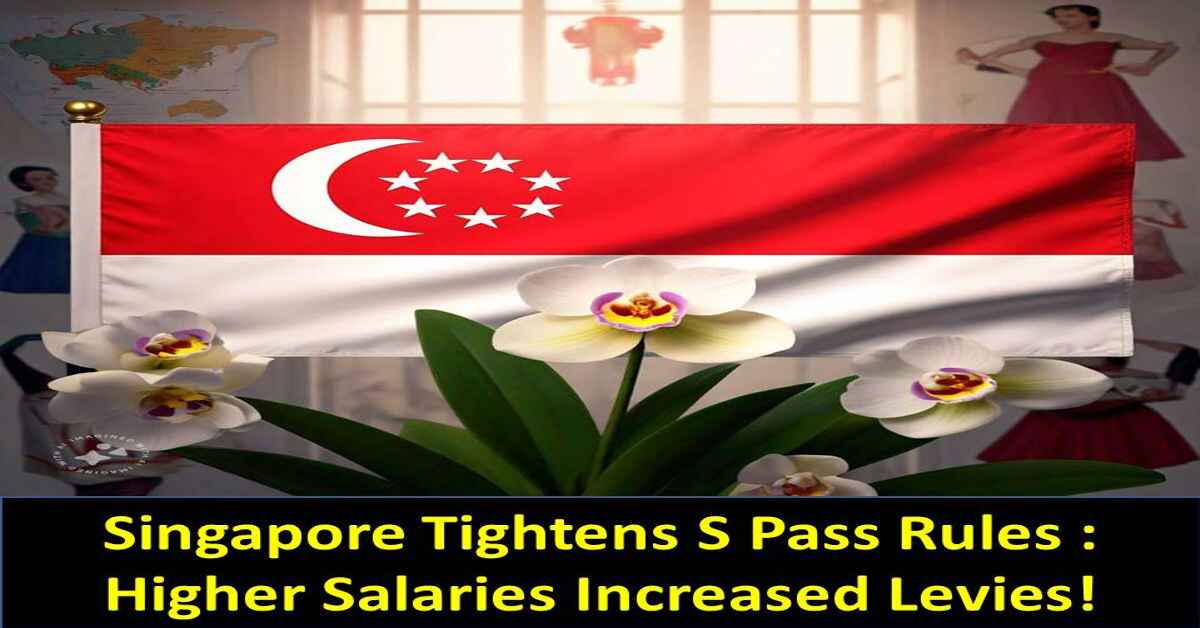The Singapore government is raising the minimum salary thresholds for S Pass applications, aiming to attract higher-skilled professionals and ensure foreign workers contribute significantly to the economy.
This change applies to both new applications and renewals, starting in 2025.
What is the S Pass?
The S Pass is a work permit for mid-skilled foreign workers, such as Associate Professionals and Technicians (APT), who don’t qualify for the Employment Pass (EP). It helps employers hire skilled talent for critical roles, offering flexibility in the workforce.
New Salary Thresholds for S Pass Applicants
Currently, the minimum salary for most industries is $3,150 per month, which increases with the applicant’s age. The salary threshold for workers aged 45 and above is $4,650. In the financial services sector, the threshold starts at $3,650 and goes up to $5,650 for older workers.
From September 1, 2025, the minimum salary thresholds will be revised:
- General Industry: A new minimum salary of $3,300 for new applications (final amount to be confirmed). Renewals will follow this rate from September 1, 2026.
- Financial Services: A new minimum salary of $3,800 for new applications (final amount to be confirmed). Renewals will follow this updated rate from September 1, 2026.
These updates will ensure that S Pass holders’ salaries are more in line with the local APT workforce.
Changes to Levy Rates for S Pass Holders
In addition to the higher salary requirements, the levy rates for S Pass holders will also increase:
- Basic/Tier 1 Levy: Raised from $550 to $650, starting September 1, 2025.
- Tier 2 Levy: Remains unchanged at $650.
How to Qualify for the S Pass
To apply for the S Pass, applicants must meet the following requirements:
- Job Offer: A valid job offer from a Singapore-based employer.
- Educational Qualifications: A degree, diploma, or relevant technical certificate for the job.
- Salary: A monthly salary that is comparable to the top one-third of Singapore’s local APT workforce based on age.
- Work Experience: Relevant experience is beneficial, especially for specialized roles.
The employer or an appointed agent must submit the application on behalf of the applicant.
S Pass Application Process
The application process for the S Pass involves several steps:
- Employer Registration: Employers must register for a CorpPass account to interact with Singapore’s Ministry of Manpower (MOM).
- Job Posting: Employers must post the job on the MyCareersFuture portal to meet advertising requirements.
- Application Submission: Submit the S Pass application online with all required documents.
- Processing Time: Applications are usually processed within three weeks.
- Approval and Issuance: If approved, employers receive an In-Principle Approval (IPA) letter, and the employee can travel to Singapore to complete the process.
Why Are These Changes Happening?
These changes aim to improve the quality of S Pass holders and ensure that their salaries are on par with the local workforce. The goal is to attract higher-skilled professionals to Singapore and maintain a competitive labor market.
Impact on Employers and Foreign Workers
Employers will face higher costs associated with hiring S Pass holders, both in terms of salaries and levies. Foreign workers will need to meet the new salary criteria to qualify for the visa.
These updates reflect Singapore’s commitment to attracting top global talent while balancing the needs of local workers.
Stay Updated
For the latest information on S Pass salary thresholds and other visa updates, visit Singapore’s Ministry of Manpower website or consult a licensed employment agent. The finalized salary figures will be announced closer to the implementation date.
Conclusion
Singapore’s revised S Pass policies are aimed at enhancing the quality of its workforce and staying competitive in the global talent market.
Employers and foreign workers must adapt to these changes to continue succeeding in Singapore’s dynamic labor market.





